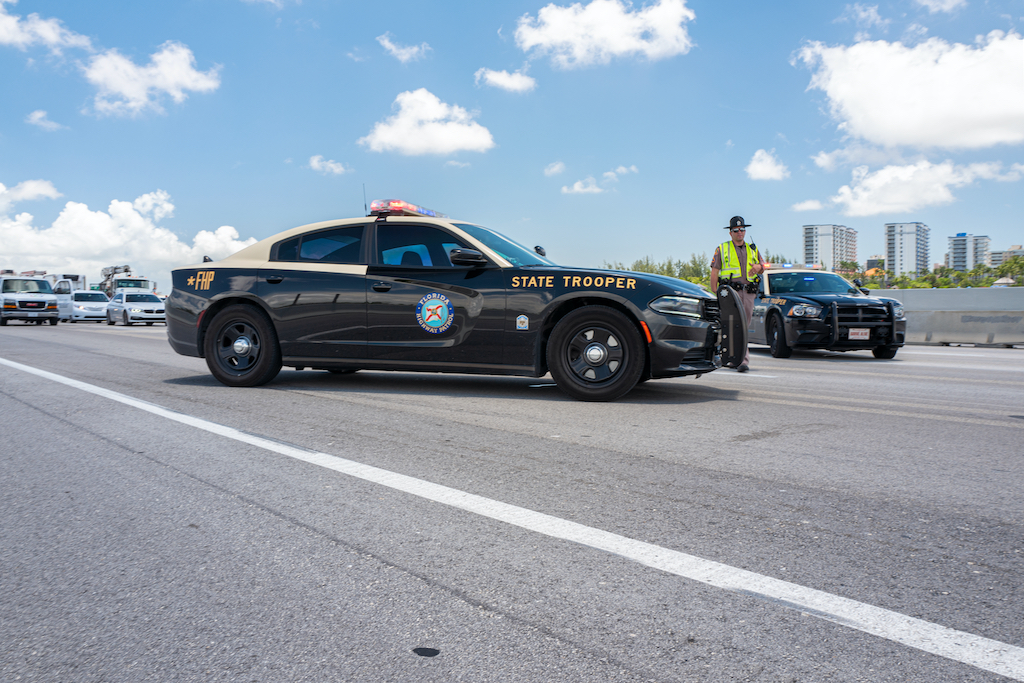
Florida has implemented a law that makes it a felony to transport immigrants into the state without being inspected by immigration authorities. Florida’s Senate Bill (SB) 1718 went into effect on July 1, 2023. One section of the new law criminalizes the transportation into the state of individuals who entered the United States without inspection. Under the new law, families now may be unable to visit each other across state lines.
The Florida law faces legal challenges, as a number of organizations now have sued the state and Governor DeSantis, seeking removal of the law, alleging that portions of it violate the due process clause of the Fourteenth Amendment. The law has been set forth under the direction of Florida governor and presidential-candidate Ron DeSantis. This federal suit claims that Florida’s law violates the U.S. Constitution for two reasons. First, the lawsuit argues that the Florida law oversteps the authority of the federal government by enacting its own immigration laws and enforcement. Second, the suit argues that the law’s vague wording makes it unclear who cannot be transported, leading to arbitrary and discriminatory enforcement of the law.
The 35-page complaint was filed by a coalition of organizations on behalf of the Farmworkers Association of Florida and various individuals, each of whom faces hardships due to this law. (Farmworker Association of Florida v. DeSantis, No.1:23-cv-22655-XXXX (S.D. Fla.)).
Without question, the law catches in its snare some unintentional participants. For example, a U.S.-citizen grandmother now fears traveling with her grandson, who may have an immigration status application pending but not yet decided by immigration authorities. She commits a felony by driving in a car with her grandson under this law. Other plaintiffs, including a nonprofit director and a Catholic deacon, are also impacted, as they can no longer transport immigrants for various purposes. They also can be arrested and charged with a felony under this law. In a state where more than 1 out of every 5 persons is an immigrant and many have mixed-status families, the law has disrupted the psyche of many. It has caused immeasurable anxiety to thousands of American citizen-family members affected by this law. Recent census data reveals that 2.7 million people in Florida (13 percent of the state’s population) were native-born Americans who had at least one immigrant parent.
More than half of all immigrants in living Florida are naturalized-US citizens. This controversial law is active in a state where 2.7 million immigrant workers comprised 26 percent of the labor force in 2018.
The lawsuit addresses the controversial issues contained in the Florida law, hitting head-on the legality of penalties attached to “a wide array of conduct that Congress chose not to prohibit,” placing “state officials in the unlawful position of making complex determinations about people’s immigration status and history.”
The lawsuit argues that the plaintiffs risk arrest, detention, and felony convictions for simply going about their daily lives and helping others. The suit aims to prevent the enforcement of the law during the litigation process. DeSantis’ office, in contrast, has accused the plaintiffs of being “human smugglers,” adding to the contentious nature of the issue.
The effects of the law are widespread, extending to Florida’s economy, as the state likely will lose “essential workers” and millions of tourism dollars.
On August 8th, the Miami federal court denied the request for a temporary injunction on a technicality, saying Gov. Ron DeSantis and the other defendants who include prosecutors from across Florida — hadn’t been properly given notice about the motion. The Miami judge said the group is free to file their injunction again. The lawsuit remains pending.


















